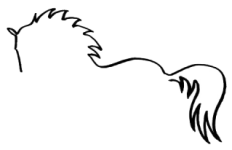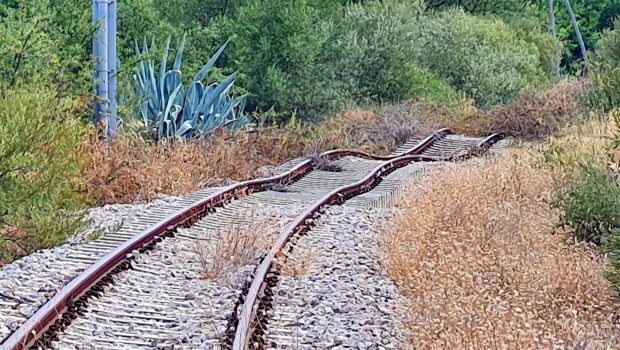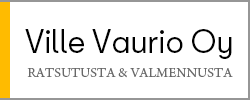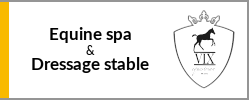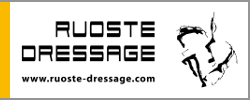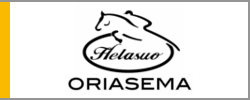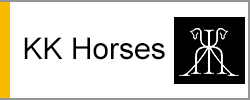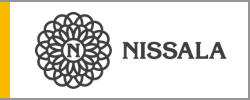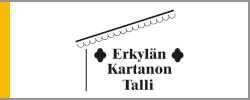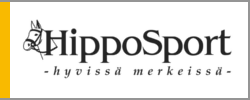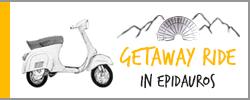HM.fi / August 2021
42 degrees in Ligourio. 47 in Athens. Melting asphalt, twisting rail tracks. Burning forests… Persisting numbers of cases of Covid-19. Not really the moment to visit Greece? I knew it. And still: I had to go. The tickets to a performance of Euripides’s Ifigeneia in Tauris were stored in my mobile. At the end of my trip, I understood the real reason for my travelling. It was not tragedy in general but its dialogue. During the last 10 months I have learned to know four persons linked to Greece. They have given me a glimpse of what a good everyday dialogue is about. Not a ping-pong of Sphinx-style tricky questions nor a showcase of one’s knowledge. A kind of a love story. A challenge to marvel at something – together.
*** *** ***
Text and photos: Horsemail.fi/Margit Ticklén. No reproduction or sharing of any kind allowed.
When you first meet someone you see her. Or him. In this case “her”. The lady who rented me her appartement in Ligourio, nearby the ancient theatre of Epidaurus.
That’s where the performances of Ifigeneia in Tauris were held in the beginning of july.
“Only ideas and ideologies matter in my life.”
These were the first words I heard from her at the restaurant we went to after seeing the play.
Words that created a jolt in my mind. Looking at her I had thought I would have nothing in common with her.
Don’t judge me too severe: she is a well aged, Sophia Loren-looking Greek lady in her 60s. Me? Like a wild animal from the deepest finnish taiga forest. In my 50s.
Yet we share crucial things. Values, attitudes, culture.

Simplicity
To start: life style. No television, no other noise (read: pop music), not much social media. Interest for natural sciences despite of humanistic studies. Love of animals and “the green” around us. Endless curiosity in front of life and its beginnings, cosmology and quantic physics.
The nights after our first meeting we didn’t go out from her yard. We sat in “our garden”, a concept borrowed from Voltaire and his Candide. Physically the space was created by lemon trees and deep black sky. Silence. Some bottles of rosé from Nemea.
I had come to see a play. I found a paradisiac surrounding and a companion for discussions. I have to quote Picasso: “I am not looking for something special – I find, a lot.”
Discussions in Ligourio lasted until morning. When I stated something she proposed to refine it. That was not dangerous: neither of us had to be absolutely right.
This kind of a conversation is called a dialogue. From the greek words dia – logos, through discourse.
I tell you more: one can get addicted to it. To its unpredictability and safety at the same time.
I ended up staying in Lygourio two weeks – instead of three days.

Nostalgy
What is Ligourio? A tiny town in Peloponnese known for its Asklepeion (ancient word for hospital) and theatre dating back to fifth century BC. These two, hospital and theatre, belong together. At the time of Euripides seeing a play was part of the therapy.
As you remember the play Iphigeneia in Tauris was my original target in Ligourio.
Not whatsoever performance. Directed by young talent Giorgos Nanouris, with Haris Alexiou as goddess Pallas Athene.
Alexiou, my favourite artist since 33 years, stopped her 50-year-long career as a singer in 2020. Only to find a second career as an actress.
The trip to Epidaurus was also of a nostalgic character. 32 years had passed since I had come to the theatre of Epidaurus for the first time.
Hardly anything has stayed in my mind about that trip in 1989. It was hot, pines were beautiful and bus crowded. At the time I didn’t study classical archaeology yet. It was soon to come. Anyway I went around Greece to see its archaeological sites. Like the sanctuary of Artemis in Vravronia, near modern port of Rafina, east of Athens.

First pretext to travel
It’s in Vravronia that Pallas Athene sends Orestes and Ifigeneia at the end of the play Iphigeneia in Tauris. The sisters bring with them (from the land of Tauris) the wooden statue of Artemis, το αγιο αγαλμα [the sacred statue]. Words that Alexiou, as Pallas Athene, is able to pronounce with an untold grace.
At Euripides’ time (1) Vravronia was already a part of the city state of Athens. It had been attached to the becoming metropolis by king Theseus, known for his exploit with Minotaur.
Theseus is important to my personal history.
When I started to study classical archaeology at the university of Helsinki I first took part in a course called The birth of Europe and a proseminar about the drawn figures in Athenian pottery during 6th to 4th centuries BC.
The proseminar requirements included a 20 pages paper. I wrote it about the imagery of Theseus on the Athenian red-figure vases of 5th century BC.
That ment Theseus was my first pretext to travel intensively around Europe. I made tens of trips to different archaeological museums and sites in England, France, Germany, Greece.
If I would have been more social a person I might have had many interesting discussions with my studymates. Unfortunately I wasn’t and I didn’t. Only later did I learn that my opponent at the proseminar, Otto Grundström, is the singer and song writer of the well known finnish rock band Tehosekoitin.
This summer Grundströms lyrics for the song Travelling alone in the night were chosen as the third most importants in Finland during the years 2000-2020. The chorus of his song summarises my feelings in Ligourio this summer:
“Travelling alone in the night
A soulmate might in front of us befall
And for a while our steps enlight” (2)
This time Lygourio won’t be forgotten. We became friends, my landlady and I. Even more, a reef knot [διπλοκομπος]. “Our summer” had soon to be added, in our speech, to “our garden”.
A surprise
Why do we trust someone and not someone else?
The answer might be simple. In a real dialogue there are no neglected propositions. All arguments stay open for adjustments. This creates an atmosphere of equality – of mutual appreciation and understanding.
To trust someone is also easier when a dialogue takes place outside of the protagonists’ everyday life. With no social spiderweb around one becomes neutral “entity”: a body, a voice.
In the garden in Ligourio boundaries for our thoughts were built only by our own minds.
Though the surroundings, a garden and its trees, played a special role. Forest being my favourite place I felt relaxed already when entering the garden in Ligourio. It evoked my admiration. None of the 14 different species of trees there exist at my home in Vihti, Finland. (3)
All of this – common civilization, meeting outside of our careers and family lives, the garden – contributed to a feeling of freedom. When we don’t fear “the other” entering our space there is a possibility for self determination and joy. Which, in turn, brings along a great peace of mind. (4)

To trust a stranger
The second question is: how can we exclude fear from a dialogue with a stranger? When his/her reactions and intentions escape our capacities of prediction?
By being true. By accepting that under our Covid-19 masks we all remain naked. Like animals led by aporia, pauperism in front of our fate. In front of la condition humaine. In front of our equal needs to find a secure shelter, to be fed, to sleep, to be accepted – and accompanied.
I wouldn’t have understood this hadn’t I had a long day talking about the meaning of the words like aporia and dialogos with a young Greek alpinist. This had happened already nine months before I ended up in Ligourio.
To meet the alpinist, called Christo, I had to have escaped the bad situation of Covid-19 in November 2020 from Athens to Meteora in Central Greece.
Now…Meteora is not even a tiny village. Meteora is a group of six monasteries built 700 years ago on pinnacles, 800 metres high pillar-like mountains nearby the town of Kalambaka.
During my first visit to Meteora (in 2017) I had been afraid of the wild dog herds in its forests. Therefore, last year, I did something I hadn’t done for 32 years. I booked a guided walking tour in Meteora.

Kind of a Meier…
A surprise helped the tour and its guide to surpass my expectations: there were no other participants than me.
Waiting for the start of the tour I contemplated Christo, my personal guide. He was half younger than me. In perfect physical condition.
The questions in my mind were: could I follow him one full day? Would we have anything to talk about?
For my surprise Christo came out to be a greek version of Vivian Meier. Meier was an American nanny who after her death in 2012 has become the most respected street photographer ever.
Meier didn’t have economical means to become a photographer. Being a nanny for rich families helped her to travel with their children around the USA – and take great pictures.
Christo had studied linguistics. For a while he had worked for an economics newspaper. Guiding tourists in Meteora had given him the possibility to live, at the side of his daily duties, his passions rock climbing and slackline. (5).

Waiting the other to find the path
Christo led me off the beaten tracks. Through the bushes, from one remote and “booked” conglomerate tower to another.
“Booked” means there is a small box hidden somewhere on top of the rock. The box contains a book with all the names of those who climbed that particular rock.
While walking we kept on talking about the meaning of the word dialogue. Dialogue came up because I told Christo having seen the monologue Metamfiesi already six times.
A monologue is the antithesis of a dialogue. A play for one voice, one actor – in this case one actress, Alexiou.
Christo answered to many of my openings by a question. “Yes, but how do you explain that? Don’t you believe one could rethink that?”
May it have been by politeness to a customer proceeding with questions was a clever choice. He didn’t offend me. I got the keys to open a new door and present the view behind it as my own discovery.

A shame
There are many reasons to envy Christo. His work place [Meteora] is a paradise on the Earth, his courage to balance on a wire between the mountain slopes amazing.
The most I admired his patiency in correcting my greek. For hours, again and again, explaining and correcting.
Even if I am not really afraid of being wrong, I find myself offending my partners of discussion all too often. Put them down by words – sometimes with their own words.
It’s a shame. Am I not constantly ending up in situations through which I realise being badly mistaken myself? My mistakes haven’t killed me.
And better: no one has killed me for my mistakes. I might have had to take a step or two backwards – after that I have been able to continue again.

Mistake
A week after getting to know Christo in Meteora I lived once more through an uncomfortable situation created by a mistake. I made a stupid opening in starting a discussion with an elderly man, on an island called Agistri…
It was during another escape from Athens. The ferry from Athens to Agistri takes only one hour.
Because the complete lockdown in Greece was announced to start at the end of that week, right after the last performance of Metamfiesi, Agistri was empty. One open bakery, one open mini market. Only cats on the streets.
On my second morning in Agistri I heard, though, the sound of a lonely wood wind instrument on the beach. I couldn’t see anyone or anything. I decided to try and follow the sound.
At the end of the beach, hidden behind the bushes, I found a man in his 60s. He gave me a sign to come to him. As I advanced he stopped playing. I asked politely whether his instrument was an oboe.
“An oboe”, he shouted. The sarcasm in his voice was not to be missed. I realized I had hit the wrong bird.
The instrument was a clarinet.

Restoration I
I felt sorry for my opening. Clearly and understandably the man thought I was not an interesting person to talk to. I later got to know he was the Swiss composer Maurice Magnoni.
Clarinet is a very greek instrument. It arrived to the country about 200 years ago. It has been and still is the lead melody instrument in greek folk music.
I could not give up with Magnoni.
I apologized by saying I should have been more alert: only a few weeks earlier I had been in Brussels listening to Angel Bat David.
Bat David was named as the rookie of jazz scene in the USA in 2019.
The instrument of Bat David is, of course, clarinet.

Restoration II
Referring to Bat David was a successful first step to restore our communication. Second, decisive, step was taken when I asked about Mr. Magnoni’s studies.
He had studied several instruments in the conservatory of Geneva as well as chinese language and literature at the university of Geneva.
The reason for learning chinese had been his interest to eastern philosophies and religions. I reacted to this fact with vivid enthusiasm: uncultivated as I was in music in religions I could put forward my hero Alexandra David-Néel.
David-Néel was a Belgian-French explorer. She became the first western woman to enter the forbidden (buddhist) city of Llhasa in Tibet in 1924. She went to Llhasa crossing the Himalayas mainly on foot.
For my astonishment David-Néel was also a hero of Magnoni’s. Magnoni himself had overtaken to walk across the Alps several times.
From these revelations on our discussion rolled on easily. During the following three hours I got from Magnoni a precious reminder of a key factor in dialogue – always look for a second option! The moments spent with Magnoni on the beach of Agistri became my most memorable ones of the year 2020.
I learned a lot about music. Magnoni saw musicians of our time do not have too much to say to their audiences. Their melodies are too simple. They don’t talk, they don’t tell us stories, he said.
This year the Swiss radio produced a five-hour-program about Magnoni’s career (6). During the interviews he argues to support his sceptical view about music. By listening to his compositions you hear what he means. His clarinet and saxophone don’t only tell stories – they pose us questions.

A reminder
Telling about the dialogues in Greece may have a taste of vanity. Don’t we talk between us in Finland? Why not write about us, about our meditative forests and lakesides?
Certainly do we talk. The quality of our dialogues is another question. It has to do with the cultural heritage of an entire people, of a nation.
Western philosophy, rhetoric and theatre all have their foundations in Greece. Greek people refer to Plato and his Socratian dialogues in their everyday speech – 2500 years after Plato’s texts were published.
Socrate was a demanding interlocutor. At his time. For modern people even more. For Socrate a dialogue was not only a way to use our brain, to reason. It was an act of love… in front of self-knowledge.
I got a reminder of that from a Greek bass player last August in my very own town, Helsinki. Entering Helsinki from Tallinn, Estonia by ferry a certain Giannis asked my help in the port. He was on his way to a hotel in Museokatu, right behind our National Museum.
I told him the hotel was three kilometres away. My advice was to turn back and take the tram. Giannis responded: “Then why don’t you take the tram? You want to see and feel things, don’t you?”
We ended up walking together to his hotel by Baana, the old railway track traversing Helsinki and changed into a cycling route.
Giannis told me he had been in Paldiski, Estonia with his girl friend to see the actual shooting places of his favourite film Lilja 4-ever. (7) His girl friend had flown back to Greece already from Letonia, before reaching Estonia nor Finland. Giannis had 24 hours to see our capital.

Between us humans
After my work I met Giannis again. This time in the jazz bar Storyville.
Giannis asked my advice in deciding what to do and see in Helsinki. We walked 1,5 kilometres to the Senate Square in the night.
A this point I got to know Giannis was a bass player in the rock band Mikro, which is well known in northern Greece – later in the same autumn, in Meteora, I would hear Christo to talk about it.
Giannis showed me pictures from his phone. He had travelled nearly around the Globe. I wondered what could astonish him in Helsinki.
He laughed at my question. He showed his head: “It’s here. Everything I need for a nice day. I just wait for you to give me directions.”
He smiled.
“When you tell something to someone you repeat what you know. By listening you learn new things. I’m all ears!”
I proposed Giannis to see places near the Senate Square: the Cathedral, the Library of Helsinki University, former home, now museum, of Marechal Mannerheim and then, for the rest of the day, go on a hop on-hop off – tour by boat to the islands of Helsinki archipelago.
I left Giannis by saying it had been a pleasure to help a Greek in my hometown because so many Greeks have helped me in Greece.
I didn’t dare to add he had given me the missing stone for my thoughts about dialogue – listening.
Mutual respect, equality, being true and direct, listening.
That’s what it is made of. A true act of love. Between us humans.

(1) 414-412 BC.
(2) “Kun yössä yksin vaeltaa / Voi kaltaisensa kohdata / Ja hetken tie on kevyt kaksin kulkea”. Copyright: Matti Mikkola & Otto Grundström, 2002.
(3) Strawberry tree (Arbutus unedo), almond tree (Amygdalus communis), lemon tree (Citrus limon), orange tree (Citrus sinusitis), mandarin orange tree (Citrus reticulata), pomegranate tree (Punica granatum), whitebark pine tree (Pinus albicaulis), Norfolk pine (Araucaria excelsa), laurel (Laurus nobilis), European grape wine tree (Vítis vinífera), loquat tree (Eriobotrya japonica), white muberry tree (Morus alba), European olive tree (Olea europaea), metrosideros excelsus tree (Metrosideros excelsa) and crimson bottlebrush (Callistemon citrinus).
(4) As described by Wendy Hui Kyong Chun in Control and Freedom, 2008: “To be free is to be self-determining, autonomous.”
(5) Balancing on a wire above the canyon valleys between the pillar mountains. Look for more in Instagram under TROFANTOS.
(6) Maurice Magnoni, L’Etat des sons, 2021 RTS (radio-ohjelma, 53 min)
(7) A swedish-danish film directed by Lucas Moodysson and released in 2002.
OLIVE TREE –
three universal values
by Y.P.
Walking in one of the endless olive groves of Argolida you will soon feel a deep peace around you. You hear the birds and the rustling of the olive trees. As sun goes down all you see is the special silver sparkle of the leaves of the olive trees.
If you choose a grove nearby the ancient theatre of Epidaurus you may encounter a HUGE olive tree, which trunk looks like three olive trees embracing each other.
By asking a local you can hear its’ story. It goes back several thousands of years – at least 2500 years. Pausanias, a well-known author and traveller in the antiquity, has written that the mythical hero Heracles, with his supernatural powers, once bent together the trunks of three olive trees, forming the one today called “twisted olive tree”.
We can only guess what did Heracles want to tell us by shaping the three olive trees like he did? By calling it the sacred triple olive tree?
Listening to its story one begins to think about all the sacred trees of the world. A tree, a forest connects humanity strongly together with nature. For the Greeks, an olive tree is also an object symbolising several things:
1) Goddess Athena. Presented with her the olive tree represents the wisdom. The deep knowledge and fair judgment that a human being needs in order to justify the divine element of his own nature.
2) Health. The relationship of the olive tree with health und survival of the greek people has been crucial – especially during the war times.
3) Peace. A branch of olive in the beak of a dove meant peace. Sometime, thousands of years ago, athletes at the Olympic Games competed for one olive wreath … That was enough for the winner of life, the prize for the best of the best.
MY excuses to write this time in english. The only possibility to let my Greek friends read and correct this text.
HUOM!
Horsemail.fi -lukuoikeus on henkilökohtainen.
Yksi tunnus = yksi henkilö.
Tunnus toimii max. kahdelta laitteelta yhtä aikaa.
ETHÄN VARASTA antamalla kaverisi käyttää tunnustasi
tai käyttämällä itse kaverisi tunnusta?
Oman tilauksen pääsee tekemään TÄÄLLÄ (linkki).
Hinnat: 8,90 e / viikko, 31,40 e / 6 kk, 49,90 e/12 kk
(sis. alv. 10%).
Lahjatilauksen teet maksamalla tilauksen
Horsemail.fi:n tilille FI57 1228 3000 0558 87
ja laittamalla viestikenttään LAHJA
sekä lahjan saajan sähköpostiosoitteen.
Kiitos!
